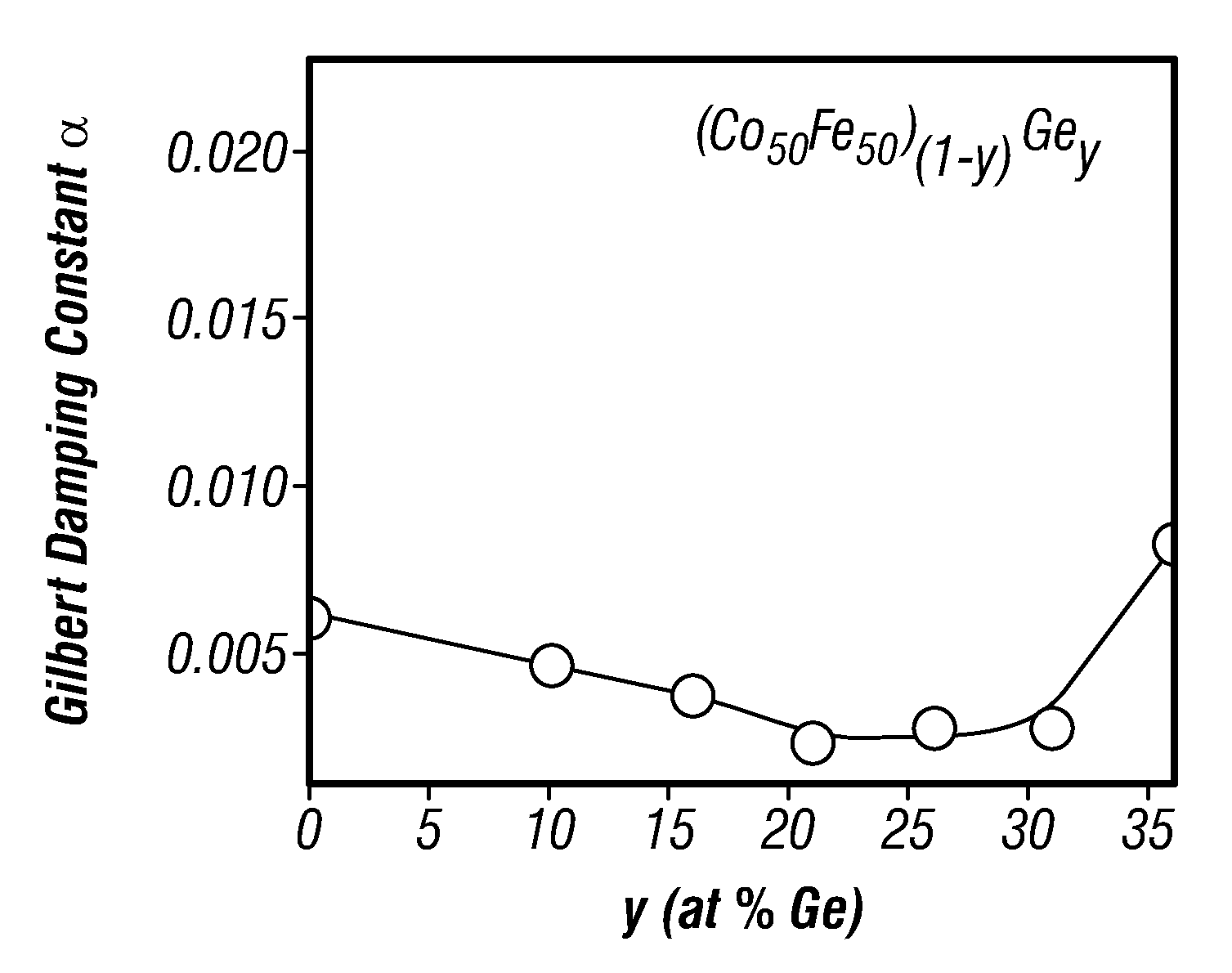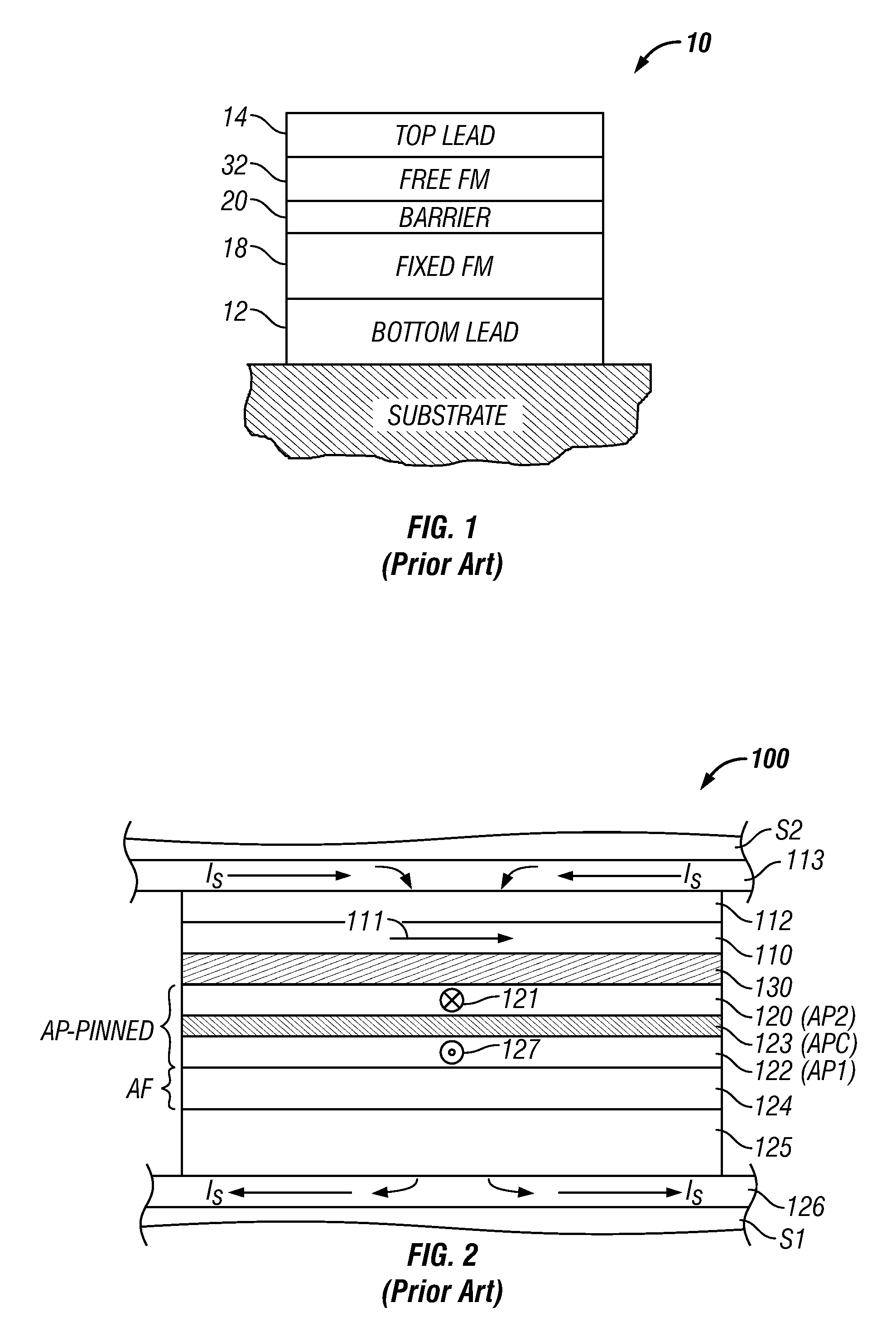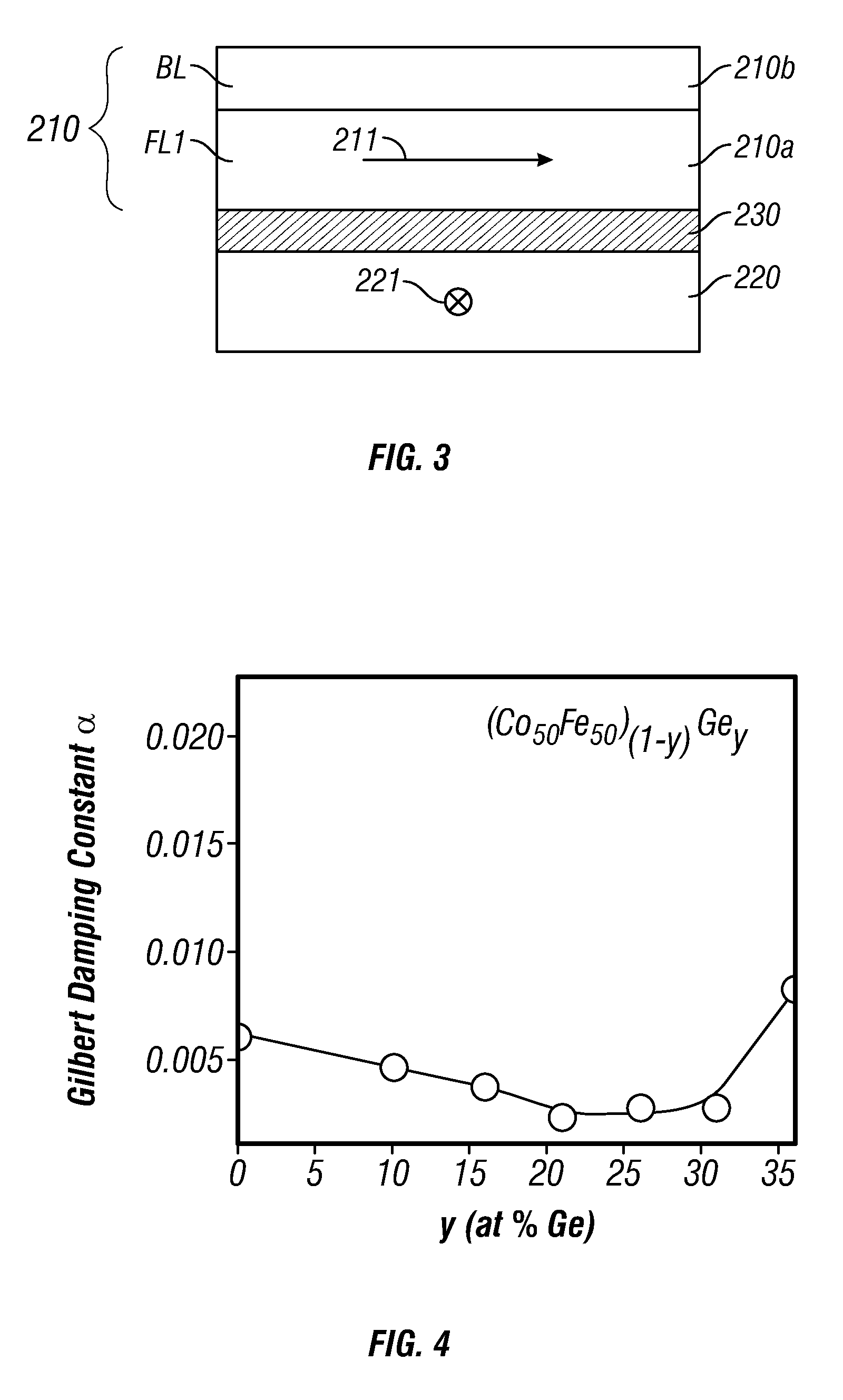Tunneling magnetoresistive (TMR) read head with low magnetic noise
a magnetic noise and read head technology, applied in nanoinformatics, instruments, record information storage, etc., can solve the problem of no advantage in using the backing layer material in the pinned ferromagnetic layer, and achieve the effect of low mag noise and low magnetic damping
- Summary
- Abstract
- Description
- Claims
- Application Information
AI Technical Summary
Benefits of technology
Problems solved by technology
Method used
Image
Examples
Embodiment Construction
[0017]FIG. 2 is a cross-sectional view illustrating the structure of a prior-art TMR read head 100 like that used in a magnetic recording disk drive. This cross-sectional view is a view of what is commonly referred to as the air-bearing surface (ABS) of the TMR read head 100. The TMR read head 100 includes a sensor stack of layers formed between two ferromagnetic shield layers S1, S2 that are typically made of electroplated NiFe alloy films. The lower shield S1 is typically smoothened by chemical-mechanical polishing (CMP) to provide a smooth surface for the growth of the sensor stack. The sensor stack includes a ferromagnetic reference layer 120 having a pinned magnetization 121 oriented transversely (away from the page), a ferromagnetic free layer 110 having a magnetization 111 that can rotate in the plane of layer 110 in response to transverse external magnetic fields from a recording disk, and an electrically insulating tunneling barrier layer 130, typically made of an oxide, su...
PUM
 Login to View More
Login to View More Abstract
Description
Claims
Application Information
 Login to View More
Login to View More - R&D
- Intellectual Property
- Life Sciences
- Materials
- Tech Scout
- Unparalleled Data Quality
- Higher Quality Content
- 60% Fewer Hallucinations
Browse by: Latest US Patents, China's latest patents, Technical Efficacy Thesaurus, Application Domain, Technology Topic, Popular Technical Reports.
© 2025 PatSnap. All rights reserved.Legal|Privacy policy|Modern Slavery Act Transparency Statement|Sitemap|About US| Contact US: help@patsnap.com



